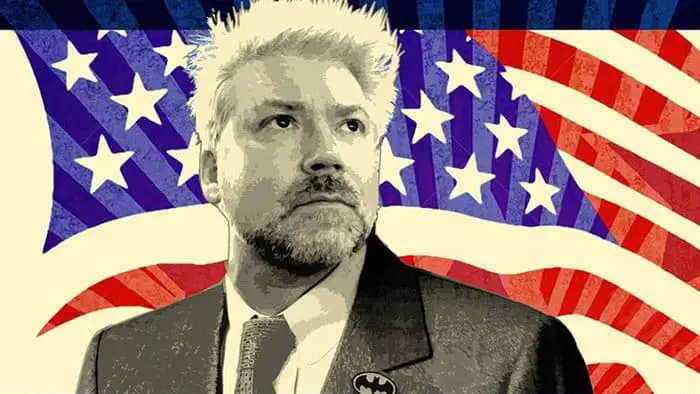
Some thirty years after his death, Elvis Presley remains one of the most significant – hell, let’s just say it, the single most significant pop artist of the modern age. We all know this, we all know that people continue to fall in love with his songs and strive to grasp some tiny shred of his aura, and yet the brilliant documentary “Altered by Elvis” still comes as a shock, with its catalogue of men and women whose lives were enhanced or destroyed – sometimes both at once – by the King of Rock and Roll, at all stages of his life and into the modern day.
The place where fandom shades into obsession, where people begin to replace their own personality with the object of their veneration, might not seem like a very happy subject, but “Altered by Elvis” is playful and light throughout, perhaps because the crazies that Tiffany and Jayce Bartok found are by and large so gosh-darn nice. There’s no better example than Paul Macleod, the operator of Graceland Too, the world’s premier museum of Elvis memorabilia. In the short time we get to know Macleod, he comes across as more than a little unhinged, collecting every scrap of paper or gaudy knickknack that he can find for the apparent reason that he’s not very good at doing anything else. Or Vicki Fritz, a transplant from Milwaukee to Memphis who practically brags about how her love of all things Elvis keeps her so occupied that she doesn’t particularly care that she has no real friends or lovers. You hear these stories, and think that these must be sad, awful people; but they so clearly love their lives that it’s frankly hard not to envy them a little bit. They may only find fulfillment in the vicarious adventures of a dead singer, but they are fulfilled when all is said and done.
As the documentary progresses from fans to those who actually knew Elvis personally, the focus begins to shift and intensify into something even more messianic. This can mean many things: for James Denson, brother of the man who taught Elvis to play guitar, the King was a sort of demon of ego. For Larry Geller, Elvis’s hairstylist, he was a sort of holy object (Geller was the individual most responsible for Presley’s late blossom of spirituality), and when Geller speaks of being one of the few people to touch his dead body, he uses the words that we might expect one to speak of a guru or saint. One might expect (at least, I did) that the more personal reflections would tend to be more, well, reflective: not so caught up with the Elvis myth as working to quietly demolish it, suggest that the King was just a human being. Not at all: the common thread of these interviews is if anything the idea that he was so much larger-than-life as to be something semi-divine or otherwise inhuman.
“Altered” isn’t the half of it; these lives have been created and defined by Elvis, and watching one person after another explain how the mere fact of his existence has added weight and meaning to their own is by turns terrifying, hilarious and exhilarating. Simply put, “Altered by Elvis” is one of the finest studies you will ever see of the relationship between pop culture mythology and the needful fans so happily devouring those myths.

